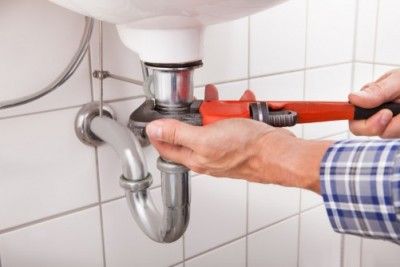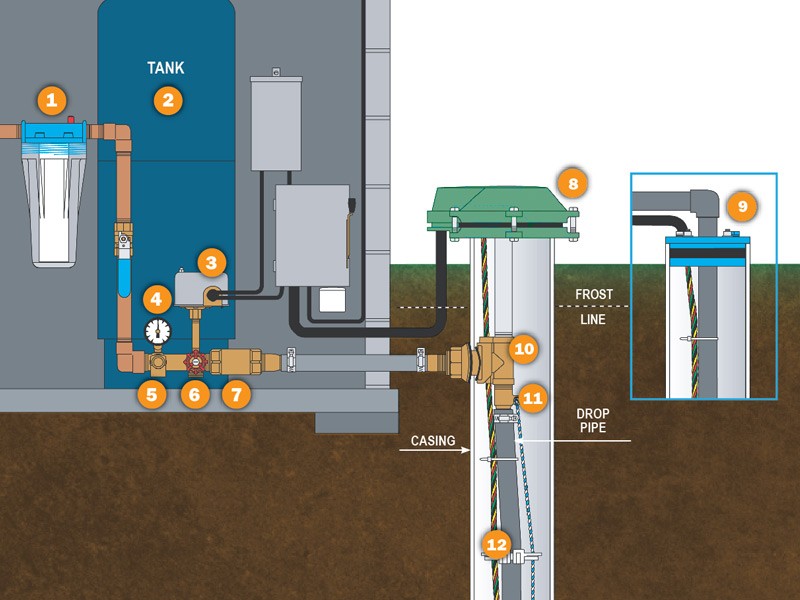Structure of Your Home's Plumbing System: Why It Matters
Structure of Your Home's Plumbing System: Why It Matters
Blog Article
Every person maintains his or her own opinion on the subject of The Inner Workings of Your Home's Plumbing.

Recognizing just how your home's pipes system functions is necessary for every property owner. From providing tidy water for alcohol consumption, food preparation, and showering to securely removing wastewater, a well-maintained pipes system is vital for your household's health and wellness and convenience. In this thorough guide, we'll explore the intricate network that makes up your home's plumbing and offer suggestions on maintenance, upgrades, and managing typical problems.
Intro
Your home's pipes system is greater than simply a network of pipelines; it's a complicated system that guarantees you have accessibility to clean water and effective wastewater removal. Understanding its elements and just how they work together can aid you stop pricey repair services and guarantee everything runs efficiently.
Fundamental Components of a Pipes System
Pipelines and Tubing
At the heart of your plumbing system are the pipes and tubing that lug water throughout your home. These can be constructed from numerous products such as copper, PVC, or PEX, each with its advantages in regards to toughness and cost-effectiveness.
Fixtures: Sinks, Toilets, Showers, and so on.
Fixtures like sinks, commodes, showers, and tubs are where water is used in your house. Understanding just how these components link to the plumbing system helps in diagnosing troubles and preparing upgrades.
Valves and Shut-off Factors
Shutoffs control the circulation of water in your plumbing system. Shut-off shutoffs are important during emergency situations or when you need to make repair work, allowing you to separate parts of the system without interrupting water flow to the whole residence.
Supply Of Water System
Main Water Line
The major water line links your home to the community water supply or an exclusive well. It's where water enters your home and is dispersed to various components.
Water Meter and Stress Regulator
The water meter actions your water use, while a pressure regulatory authority guarantees that water flows at a secure pressure throughout your home's plumbing system, stopping damage to pipelines and fixtures.
Cold Water vs. Warm water Lines
Understanding the distinction in between cold water lines, which supply water straight from the main, and hot water lines, which lug warmed water from the water heater, aids in fixing and preparing for upgrades.
Drain System
Drain Water Lines and Traps
Drain pipes lug wastewater away from sinks, showers, and bathrooms to the sewage system or septic system. Traps stop sewer gases from entering your home and likewise catch particles that could trigger obstructions.
Ventilation Pipes
Air flow pipelines allow air into the water drainage system, preventing suction that might slow down water drainage and cause traps to vacant. Correct ventilation is important for preserving the stability of your pipes system.
Significance of Correct Drainage
Making sure correct drainage stops backups and water damage. Consistently cleaning drains pipes and keeping traps can stop pricey repair work and prolong the life of your pipes system.
Water Heating Unit
Kinds Of Hot Water Heater
Water heaters can be tankless or standard tank-style. Tankless heating systems heat water on demand, while storage tanks save warmed water for prompt use.
Upgrading Your Pipes System
Factors for Upgrading
Upgrading to water-efficient fixtures or changing old pipelines can improve water quality, minimize water costs, and increase the value of your home.
Modern Plumbing Technologies and Their Advantages
Discover modern technologies like smart leak detectors, water-saving bathrooms, and energy-efficient hot water heater that can conserve cash and reduce environmental effect.
Expense Factors To Consider and ROI
Compute the upfront costs versus long-lasting cost savings when thinking about pipes upgrades. Several upgrades spend for themselves through reduced utility expenses and fewer repair services.
Exactly How Water Heaters Attach to the Pipes System
Recognizing just how hot water heater link to both the cold water supply and hot water distribution lines helps in diagnosing concerns like not enough warm water or leaks.
Upkeep Tips for Water Heaters
On a regular basis purging your hot water heater to get rid of debris, examining the temperature level setups, and checking for leakages can prolong its life expectancy and enhance energy effectiveness.
Common Plumbing Issues
Leaks and Their Reasons
Leakages can happen due to maturing pipelines, loose fittings, or high water stress. Attending to leaks without delay avoids water damage and mold development.
Obstructions and Obstructions
Blockages in drains and toilets are often triggered by flushing non-flushable products or a buildup of grease and hair. Making use of drainpipe displays and being mindful of what goes down your drains pipes can avoid clogs.
Indicators of Plumbing Troubles to Look For
Low water stress, slow drains pipes, foul odors, or abnormally high water costs are indications of potential pipes troubles that must be dealt with promptly.
Pipes Upkeep Tips
Normal Evaluations and Checks
Set up annual plumbing assessments to catch problems early. Look for indications of leakages, corrosion, or mineral buildup in taps and showerheads.
DIY Upkeep Tasks
Basic tasks like cleansing faucet aerators, checking for commode leaks making use of dye tablets, or shielding revealed pipelines in cool climates can protect against major pipes concerns.
When to Call an Expert Plumbing Professional
Know when a plumbing concern requires expert know-how. Attempting complicated repairs without correct knowledge can bring about more damages and higher fixing costs.
Tips for Decreasing Water Use
Straightforward practices like taking care of leakages promptly, taking shorter showers, and running full lots of washing and recipes can save water and reduced your utility expenses.
Eco-Friendly Plumbing Options
Think about lasting plumbing products like bamboo for flooring, which is durable and environment-friendly, or recycled glass for kitchen counters.
Emergency Readiness
Steps to Take During a Pipes Emergency
Know where your shut-off valves lie and just how to switch off the water supply in case of a burst pipe or significant leakage.
Relevance of Having Emergency Situation Contacts Convenient
Keep get in touch with details for local plumbings or emergency situation solutions readily available for fast feedback during a plumbing dilemma.
Ecological Impact and Conservation
Water-Saving Fixtures and Devices
Mounting low-flow taps, showerheads, and toilets can significantly decrease water usage without sacrificing performance.
DIY Emergency Fixes (When Appropriate).
Temporary repairs like making use of air duct tape to patch a leaking pipe or putting a container under a trickling tap can decrease damage until an expert plumbing shows up.
Final thought.
Understanding the anatomy of your home's pipes system encourages you to maintain it effectively, saving money and time on fixings. By complying with routine maintenance regimens and remaining educated concerning modern-day pipes modern technologies, you can ensure your plumbing system runs successfully for years to come.
The Anatomy of Your Home s Plumbing System
Understanding the anatomy of your home s plumbing system is essential for any homeowner. It not only helps in identifying potential issues but also facilitates effective communication with professionals when repairs or upgrades are needed. Your home s plumbing system is more than just pipes and faucets; it s a complex network that ensures the efficient and hygienic flow of water in and out of your house. In this blog, we ll dissect the crucial components of your home s plumbing system. For those in Antelope Valley, Brock Plumbing is your trusted partner for all your plumbing needs, ensuring your system functions smoothly and efficiently.
Water Supply System
Main Water Line: This is where your home s plumbing system begins. The main water line connects your home to the public water supply or a private well. Pipes and Shut-off Valves: Pipes distribute water throughout your home. Shut-off valves are crucial for controlling the flow of water and making repairs without shutting off the entire system. Drainage System
Drain Pipes: These pipes carry waste and water away from sinks, toilets, and showers. Vents: Vents allow sewer gases to escape and help maintain proper pressure in the drainage pipes, ensuring efficient flow of wastewater. Traps: Every fixture has a trap, a U-shaped pipe that holds water and prevents sewer gases from entering your home. The most common is the P-trap under sinks. Fixtures and Appliances
Fixtures and appliances are the most interacted with parts of your plumbing system. They include sinks, toilets, showers, dishwashers, and washing machines. Each fixture and appliance has its own supply and drainage connection, ensuring they receive clean water and can dispose of wastewater effectively.
Water Heating System
Your water heater is a crucial component, providing hot water to various fixtures and appliances in your home. It can be tank-based or tankless, with each type having its own set of advantages and maintenance requirements. Regular maintenance is essential to ensure efficient operation and extend the lifespan of the unit.
Sump Pump
In areas prone to flooding or with high water tables, a sump pump is an essential part of the plumbing system. It s installed in the lowest part of your basement or crawlspace and pumps out water that accumulates, preventing flooding and protecting your home from water damage.
Septic System
Homes that are not connected to a municipal sewer system have a septic system and an underground wastewater treatment structure. Understanding how to maintain your septic system is crucial to prevent backups, odors, and early system failure.
Conclusion
Your home s plumbing system is a complex and essential network, ensuring the efficient and hygienic flow of water in and out of your property. Understanding its key components helps in maintaining it properly and identifying issues before they escalate into major problems. For residents in Antelope Valley, Brock Plumbing is dedicated to providing top-notch services, ensuring that every part of your plumbing system is in perfect working order. Trust our team of professionals to handle all your plumbing needs, ensuring your home remains comfortable, safe, and well-maintained.
https://brockplumbinganddrains.com/blog/the-anatomy-of-your-homes-plumbing-system/

We had been made aware of that editorial on The Inner Workings of Your Home's Plumbing from an acquaintance on a different web address. Do you know about someone else who is fascinated with the niche? Take a moment to promote it. Kudos for your time. Don't forget to come visit our blog back soon.
Visit Homepage Report this page